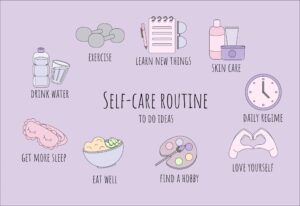By Joyce Hii Yi Hui (BAC Apprentice)
People who suffer from mental illness often struggle a double-edged sword battle. Besides suffering from the symptoms of the condition itself, misperceptions of the condition by society create further complications where they experience discrimination. Social stigma and discrimination can arise from several reasons, which include the stereotyped views by society. Some people believe that people with mental illness are dangerous, while the fact is they are at a higher risk of harming themselves than hurting other people.
Besides, the lack of knowledge on mental illness contributes to social stigma too. For example, society always has the misconception that depression springs from simply overthinking, poor stress management and negative personalities. In fact, depression most likely results from a complex interplay of individual factors, and one of them is abnormal brain chemistry. Neurotransmitters such as dopamine, norepinephrine and serotonin play important roles in regulating mood and emotion, and researchers have suggested that imbalance of these neurotransmitters in the brain could contribute to depression. This has shown that mental illness is actually similar to physical illness, where the imbalance of brain chemistry can be cured by certain medications.
We always help those with a physical illness to receive treatment, taking care of them, and treating their illness with seriousness, and legitimacy that it deserves. However, we seldom think to do the same when it comes to a person with mental illness. It is important to abort the social stigma and discrimination to avoid making someone’s mental health problems become worse, as it can delay or stop them from getting help.
So what should you do to help and support someone suffering with mental health problems?

Recognise the signs of mental health problems
Having a mental illness may be “invisible” to many, and some people are unaware of their mental health condition. Learn and research on mental health issues. Help them identify the signs of mental illness. This will enable them to reach out to a medical professional for initial treatment, preventing serious symptoms from developing. The signs of mental illness include problems performing at school, work, or social activities, getting upset easily or dramatic changes in sleep and appetite.
Express your concern and support
Starting the conversation is hard, yet important, to express your concern and willingness to listen and be there with the person. You do not have to be an expert or to have the answers. What you need to do is to reassure them that you care about them and are there for them. Avoid being judgemental of their thoughts and actions such as telling them “just try to be happy”, as this is equivalent to telling someone with a broken leg to “just try to walk.” Listen and be understanding, do not disregard or challenge the person’s feelings.

Help them find support
Some people may be unsure of how to reach out for support. Even if they do, it can be daunting to search for a medical professional, and to make an appointment. You can offer to help them by researching potential therapists, hours, locations, and insurance related issues. Encouraging and supporting them to make that first appointment can be helpful in helping them to deal with their mental illness.
Besides, you can support them in continuing therapy. Sometimes, mental illness can zap energy and they tend to cancel their therapy appointment. What you can do is to encourage them and you may say: “Your last session was really productive and I believe that you can do well too in today’s session!” You can even accompany them to their appointment to show your support towards them.
Offer to help with everyday tasks
Day-to-day tasks can be overwhelming for those who suffer from mental illness. Start with simple things such as laundry, grocery shopping, or house cleaning. If they are behind on any household chores, you can also offer to come over, put some music on, and work things out together with them. Simply having company can make the work seem less daunting.

Self-Care
Finally, you must take care of yourself, physically and emotionally. Taking care of people with mental illness requires your energy and you may feel drained or frustrated. Know your limits and set boundaries. For instance, you may let them know that you are not available now but you will get back to them as soon as possible. Besides, involving others friends and family members can help create a bigger support network, at the same time allow you to have a chance to recharge. It is important to note that when you spend time rejuvenating yourself through self-care, you are not only supporting your own needs, but you are nurturing the energy to help your loved one.
If you feel your loved one is struggling with mental health problems and they need support, feel free to reach out to us.



